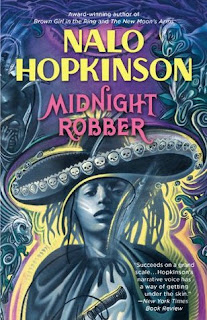Week Seven: The Novel of Spiritual Education
A question
everyone must ask for their fantasy world is, who gets magic? How do they get
magic? Can anyone do it through hard work and dedicated study, or are you born
with it? In what way does this affect the society and culture of the peoples?
It’s a very interesting subject rife for exploration, in my opinion. For this
week I want to compare Harry Potter to another story similar story discrepancy
between magic users and those who can’t is a major theme. That book is “The
Magician’s Guild” trilogy by Trudi Canavan. In the book magic is only
accessible to the upper class as you need a mage to unlock your magic and it is
considered a great honor for the family. The poverty stricken lower class,
dwells, are not helped by magic and are subjugated and driven away by mages on
behalf of the aristocracy. The story begins when a dwell, Sonea, finds out the
magic insider her has been naturally unlocked without a mage, a very rare
occurrence. When she is accepted into the magician’s guild and must go to
school to learn magic, she faces classism from her well to do classmates.
I find this
a more compelling narrative to cover the theme than in Harry Potter. Unlike in
Harry Potter the world is not separated so non magic users have no where to go.
There is not a world that they are the norm that being a non magic user is a
detriment, it’s only a detriment in the wizarding world, thought some of this
aspect is explored with squibs. The main character is more directly affected in
day to day life by the classism faces. I also think it’s stronger in that everyone
has the ability to do magic in “The Magician’s Guild”, but it’s only available to
a privileged few, making it a more of a societal issue.
Unfortunately,
Magician’s Guild abandons it’s class divide setup in favor of exploring dark
magic and an attack from another country. If it stayed with it’s original
themes and explored it farther It think it would’ve been a stronger series.


Comments
Post a Comment